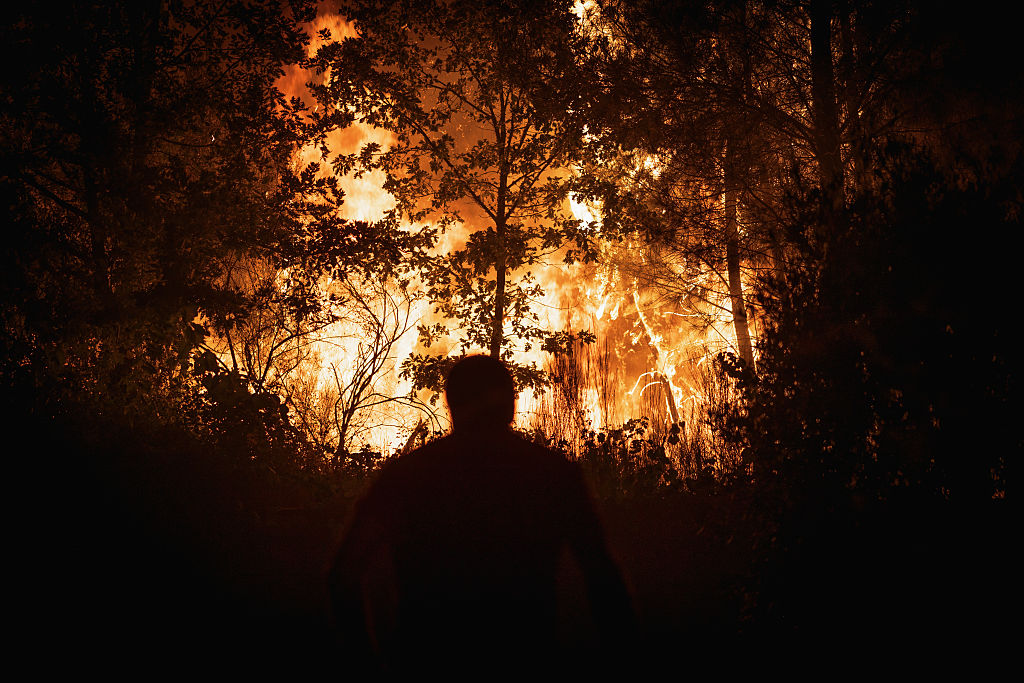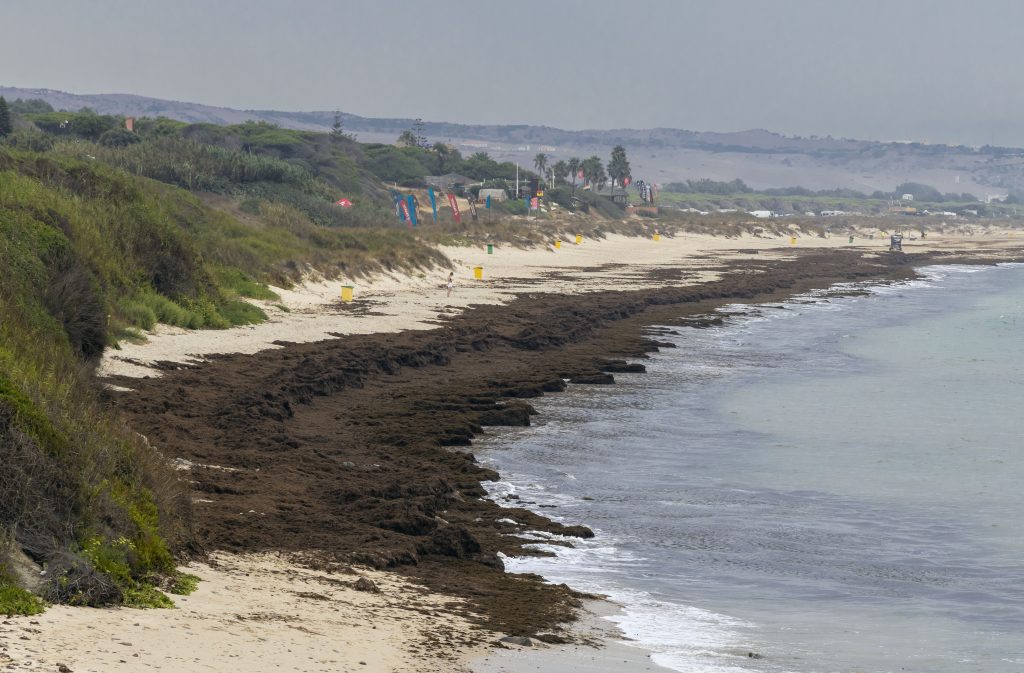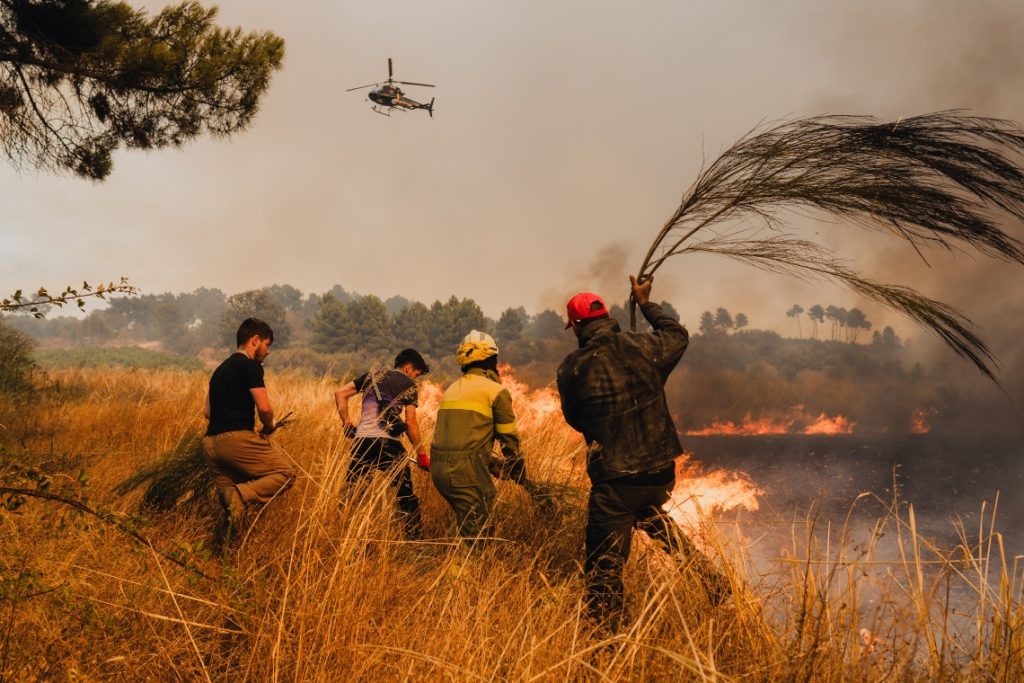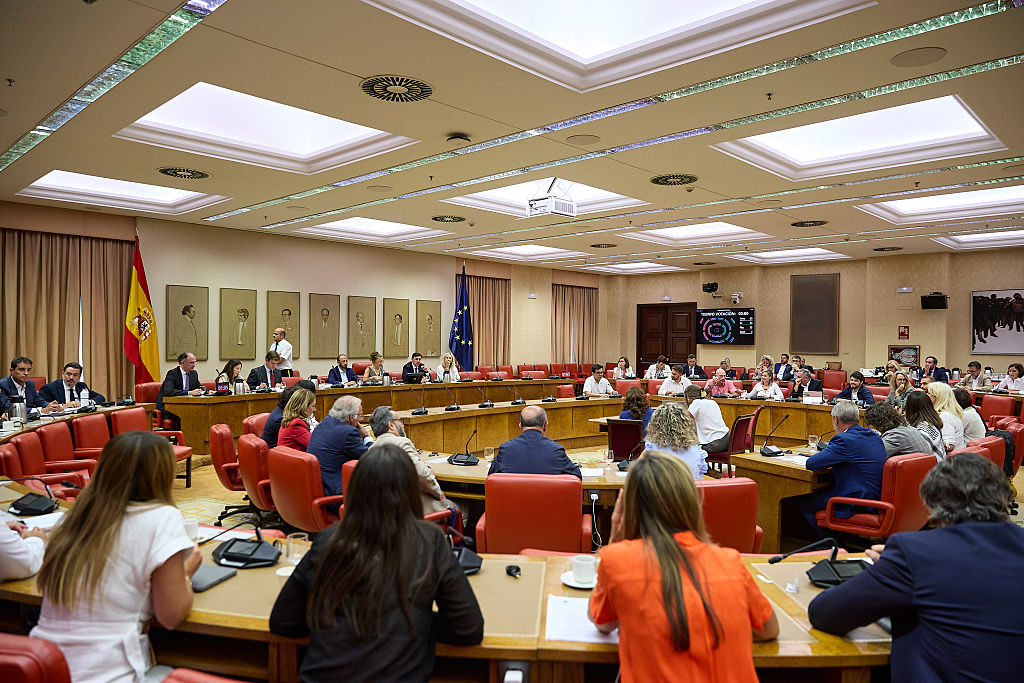From arson to carelessness: how humans set Europe on fire
A staggering 96% of EU wildfires are human-caused, many set on purpose

Almost all of the fires that ravage Europe every year are caused by humans, often deliberately. Yet the issue is consistently overlooked by policymakers and treated lightly by courts.
This year, Europe has endured its worst-ever wildfire season, with over a million hectares (10,000 square kilometres) of forest and woodland reduced to ashes by the end of August – more than triple the 2006-2024 average for the same period.
“Spain and Portugal alone account for more than half of the destruction,” EU crisis management and preparedness chief Hadja Lahbib told lawmakers in Strasbourg on Tuesday during a debate on wildfires in southern Europe.
While MEPs discussed how to prepare for and respond to conflagrations, the deeper question remains: what is causing such consistent devastation that we now speak of an annual ‘wildfire season’ as though it were inevitable?
While climate change fuels the droughts, heatwaves, and winds that turn forests into tinderboxes, it is humans who set them alight.
“Climate change drives intensity, but ignitions are human-driven,” said Elias Tziritis, who coordinates action on forest fires at WWF Greece.
The European Environment Agency supports this view, estimating that 96% of wildfires in the EU are caused by human activity.
Many blazes are caused by carelessness, but a significant proportion are deliberate – especially in the worst-affected countries: Portugal, Spain, France and Greece.
A nation of arsonists
Portugal, often dubbed the EU’s most flammable country, has seen arson identified as the cause of around a fifth of wildfires. Alarmingly, these fires have accounted for 56% of the total area destroyed, according to official data. However, policymakers have largely overlooked the problem and courts have been lenient.
“A significant part of ignitions is a crime of arson,” Portuguese MEP Ana Miguel Pedro from the EPP group declared during the parliamentary debate in Strasbourg.
“This is a serious crime that destroys lives, villages and natural heritage,” Pedro said. “The law exists – what is lacking is firm justice, without complacency.”
Portuguese authorities have arrested around 100 people on arson charges this year alone, including a councillor from the far-right Chega party. Yet many remain at liberty while awaiting trial, and most convicted offenders receive suspended sentences.
“Less than 20% of those convicted of arson serve effective prison sentences, perpetuating a perverse cycle of impunity that undermines the credibility of justice and encourages recidivism,” said João Massano, president of the Portuguese Bar Association.
Farming practices
Arson is not always random destruction. In Spain, for example, most deliberate fires are linked to the clearance of bushes and forests to create grazing land.
“In terms of the area burned, livestock farming practices are the most common cause after fires of unknown origin,” the Spanish civil society group Civio wrote, citing official figures from 1968 to 2017, during which time a total of 51,930 fires were linked to farming.
A 2015 government report also found that farmers often start fires while clearing land during high-risk periods and then allow them to spread unchecked.
By early September, 56 people had been arrested in Spain for causing fires, with a further 115 under investigation.
Hunting practices also spark outbreaks in Spain, as landowners set fires to move livestock. Other motives include property disputes and revenge.
The scale of Spain’s fires this year forced the government to declare a state of emergency lasting several weeks. Four people were killed, 30,000 were displaced and more than 380,000 hectares were burned.
Lack of data
With the exception of France, where the authorities have determined that nine out of 10 fires have a human origin, with 30% started deliberately, the causes of fires in the Mediterranean are often not established, let alone investigated.
In Greece, according to 2019 data, just over half (52%) of wildfires have no ascertained cause. In Portugal, the causes of 51% of fires between 2020 and 2024 remain to be investigated.
“From our experience we know the drivers for the majority of deliberate fires are land use change, pasture activities, and revenge,” Tziritis of WWF told Euractiv.
However, he warned that the lack of reliable data makes it harder to design social and policy interventions to prevent fires.
“Is very important to have public data, and gather the public to have a debate, that then leads to prevention and change,” Tziritis said.
(rh, de)









